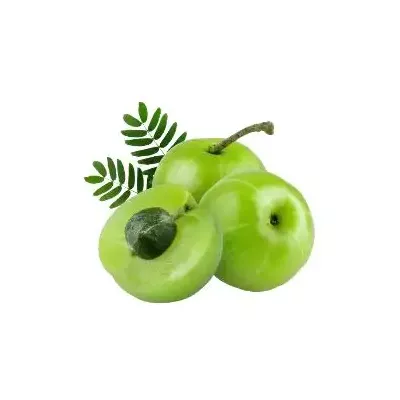



The Indian gooseberry, also called amla or the nellikka, is a fruit-bearing tree native to India. It is an important ingredient of many ayurvedic preparations for health and wellness.

Pay using UPI, Card or Netbanking

Shipping within 3 working days
Amla (Nelly) is a medium sized deciduous tree. Each gooseberry is rich in vitamin C and this is its main medicinal content.
According to Ayurveda, amla soothes Tridosha, increases immunity and mineral nutrition and reduces diabetes and fever. It is also a nerve stimulant.
The tree is a small to medium-sized tree that may grow up to 18 metres high but is usually about 10 metres tall. It has a spreading crown and a twisted or curved trunk.
Amla grows well in tropical and subtropical regions. It also tolerates a variety of soil types, but grows best in slightly acidic soils.
Amla prefers full sun to partial shade.
Amla trees should be planted at least 6 metres apart. Grafted varieties of Amla plants can be grown in containers too.
The Amla tree only needs minimal pruning. Dead or diseased branches should be removed.
Once established, amla is relatively draught tolerant. Provide water under sever draught conditions. Amla grown in containers require regular watering.
Amla is a round, greenish to pale yellow berry about 1-3 centimetres in diameter. As it ripens, the colour become paler. The amla berries has a sour and slightly bitter taste.
Red-coloured hybrid varieties of amla are also available now.
The amla / nellikka is used in cooking to add a sour flavour to dishes. It's also used for making chutneys, pickles and preserves. Amla is often eaten with salt and red chilli powder as a snack.
Amla is a rich source of vitamin C, antioxidants and other nutrients. It's also low in calories and rich in dietary fibre.
Data sheet